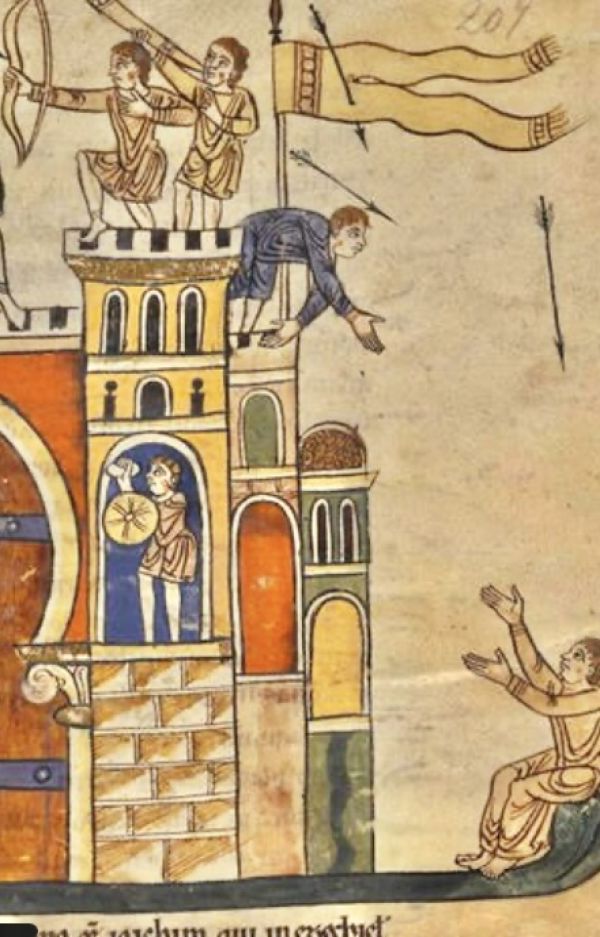Instances of the world, idea of ‘perfection’, sense of the Christ
(Lk 21:5-11)
In his Apocalyptic Discourse Lk wants us to meditate on the meaning of history and ‘what is it that remains’... but how many adverse conditions and oppositions!
So he aims to support the hope of poor people and persecuted of his communities.
Certainly, Faith turns to the God who guides history. He is Lord of it; but today remains obscure and uncertain, so we remain as if hunted by instances that do not correspond to us - but loom.
Even some believers were beginning to doubt: does God really have control over the facts and the cosmos? It’s the same question we ask ourselves today: in the midst of so many calamities, where will we end up?
In order not to be confused and plagiarized, a better awareness, a refinement of perception must take over in order to discern the meaning of the “realms” that alternate and pass.
The authentic Church has a new Vision, which precisely advocates these earthquakes and calamities, i.e. the shattering of the concatenations of the ancient world.
On the other hand, the turmoils do not disintegrate creation: they prepare a radically new one.
We have to endure within and apply ourselves - perhaps taking more care of the character of time, of unusual friends of the soul, and neglecting the inherited [or imposed] idea of ‘perfection’.
So many worlds built by the mind and hands of man imagined themselves perpetual, even the Goal of everything.
Instead they continue to collapse, dragging away ancient expressions, beliefs, customs, hegemonies, visions of things.
Each era carries with it the crumbling of human ediments and its empires - fragile and insubstantial, despite the contrary appearances (and the sense of permanence with which we interpreted them).
The functions of the earth have no other law than that of perishing: they are undermined at the base, destined to evaporate.
In a moment they move from control to flaking and from dominance to insignificance.
A reversal is enough.
Conversely, the New Kingdom is intimate and like whisper: for this reason it does not remain chipped by external events.
We are not so much called to resist some hard changes, as to stay with them.
The objective is to be ‘re-born’ - as sons, still regenerated, who go through another founding Eros [to whom abandon themselves, otherwise it will not be able to perform its high function].
This impetus settles in hearts and transforms them; it cements them, without clamour: with a very great, subversive power, which triggers new forms - but with secret virtue.
It has another step and rhythm, cozy; and a different time.
So we do not lose any part of ourselves, indeed we let grow all sides of personality and relationships.
It is the Faith [plural] that accepts the opposites - to solidify the stones.
To internalize and live the message:
How do you experience the upheavals?
Do you contract your freedom or do you ignite your most brilliant (even opposing) secret powers?
[Tuesday 34th wk. in O.T. November 25, 2025]












